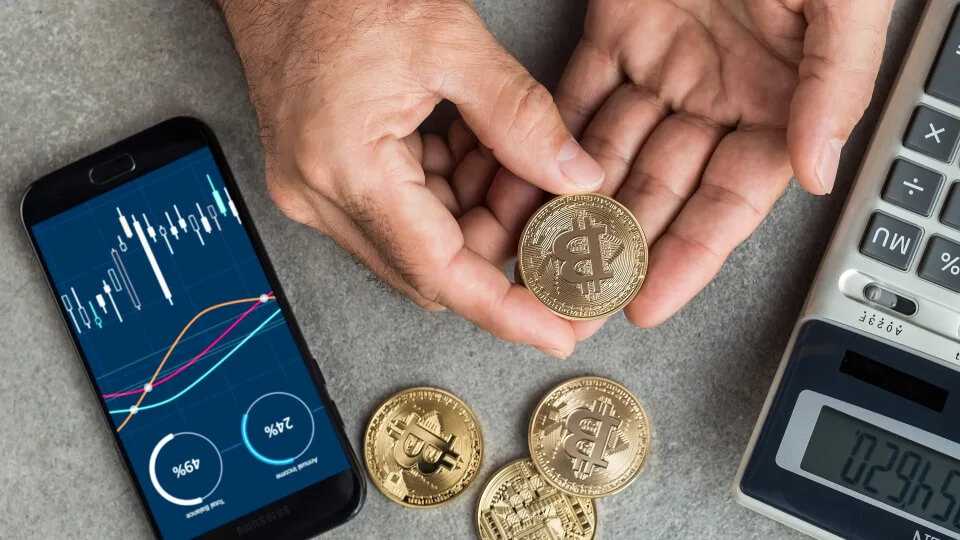Amid mounting anticipation for the Securities and Exchange Commission’s (SEC) approval of what many see as the “Holy Grail” of crypto — Bitcoin exchange traded funds (ETFs) — the regulator’s X (formerly Twitter) account was “compromised,” on Jan. 9, falsely announcing it had approved them.
See: The 6 Investments Everyone Should Make During an Economic Downturn
Find: 3 Things You Must Do When Your Savings Reach $50,000
This scenario sent the price of Bitcoin for a ride before eventually stabilizing.
Some experts said this outcome was “completely unacceptable and a complete embarrassment for the SEC.”
“The social media manager in charge of an account that can cause a market crash failed to have 2-factor authentication? Total amateur hour at the SEC,” said Christopher Alexander, chief analytics officer of Pioneer Development Group. “There seems to be no accountability for those who want to hold the crypto industry accountable.”
This latest turn of events comes on the heels of the SEC warning against the safety of digital assets. The U.S. Securities and Exchange Commission’s Office of Investor Education and Advocacy posted a “say no go to FOMO” message to X on Jan. 6.
Since 2021, there have been several Bitcoin-linked ETFs — however, so-called spot Bitcoin ETFs are what many investors and analysts have been hoping for. In the interim, there has been continued stalling from the regulator, who has argued that spot Bitcoin ETFs might not be safe for investors.
Also: 11 Uncommon Investments That Can Actually Make You a Lot of Money
Sponsored: Owe the IRS $10K or more? Schedule a FREE consultation to see if you qualify for tax relief.
Why Is the SEC Reiterating Crypto Warnings Ahead of an Expected Approval?
According to Alexander, the SEC has positioned itself as a shield for the public against crypto and is reluctantly moving toward approvals for these ETFs. Per Alexander, the SEC is doing so while trying to maintain an image of “tough cops taking a hard stance on the industry as they find a new way forward.”
“Given the volatility demonstrated in the market the past two weeks, I don’t think urging prudence from investors is entirely unreasonable, though the SEC approach is alarmingly heavy handed,” said Alexander.
Are Bitcoin ETFs Safe, Broadly?
According to some experts, Bitcoin ETFs could pose something of a safety issue.
“You aren’t buying Bitcoin, which would be superior,” said Evander Smart, founder of Bitcoin University. “You are buying into a banking scheme, so the issuer, and the SEC, are in charge of your ‘safety.’”
Smart further argued that the safest Bitcoin investment is buying and securing your own Bitcoin — and that buying into ETFs is a “lazy form of exposure.”
“Banking products have a cost, and you don’t actually own anything, but a derivative. So, getting actual Bitcoin is the winning move,” added Smart.
Yet, other experts also point to the fact that Coinbase has been designated as the custody provider for most of these ETFs, which could ensure their safety.
“Coinbase has a reputation for sound and safe business practices in this space,” said Rich Rines, an initial contributor to Core DAO.
Yet, Rines also noted that the best way to own Bitcoin is directly through self-custody, perhaps holding it by way of a hard wallet, because this eliminates the counterparty risk of having your BTC in custody of a third party.
What Will These ETF Approvals Mean for Investors and for Bitcoin?
Many see these Bitcoin ETFs as an enormous positive factor, buoying the entire crypto ecosystem and spurring adoption.
These ETFs will merge traditional finance with the emerging world of decentralized finance, offering a regulated investment vehicle that enhances Bitcoin’s accessibility to a wide range of investors.
“I don’t know whether the price will go up or down, but the energy and interest in these ETFs suggest there could be a large amount of fresh capital flowing from traditional investors into these custodied BTC products,” said Rines.
Yet, as Markus Levin — co-founder of XYO Network — noted, the substantial amount of money that is likely to flow into these Bitcoin products from traditional investors will probably push the price much higher over the coming months and years.
Nonetheless, in terms of broad global adoption, these ETFs might not be sufficient. A crucial component of the digital asset space, including Bitcoin, will be creating services and products that operate in a non-custodial, decentralized fashion.
“That’s the core ethos for not only Bitcoin but also decentralized finance, NFTs, crypto gaming, etc. If we don’t achieve further decentralization in this regard, then these ETFs might not be enough to push the broader digital asset industry forward in terms of global adoption,” he added.
And while many experts argue that these approvals might boost Bitcoin’s price, some argue that the price will rise with or without the spot ETFs.
“Last year, Bitcoin rose over 150%, with no assistance from Wall Street,” said Alexander. “The ETF will just add fuel to the fire, but Bitcoin wins, either way. The individual investor wins when they hold Bitcoin.”
Another potential impact for investors is that a predicated influx of institutional capital — from the participation of major players like Blackrock, Vanguard, and others in the Bitcoin ETF arena — bodes well for the overall ecosystem, bolstering the market’s robustness and potentially paving the way for increased stability.
“It’s not just Bitcoin that will thrive. I firmly believe that alternative coins, or ALT coins as commonly referred to, will experience a notable surge,” said Mason Miller, president of AMP ALGOS.
https://finance.yahoo.com/news/bitcoin-linked-etfs-safe-buy-175721618.html?guccounter=2
